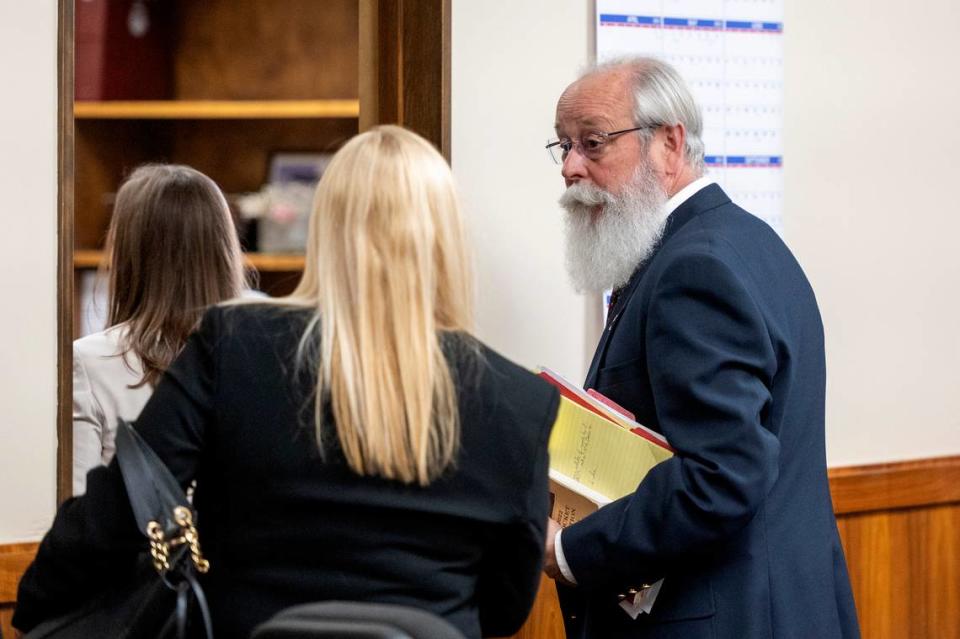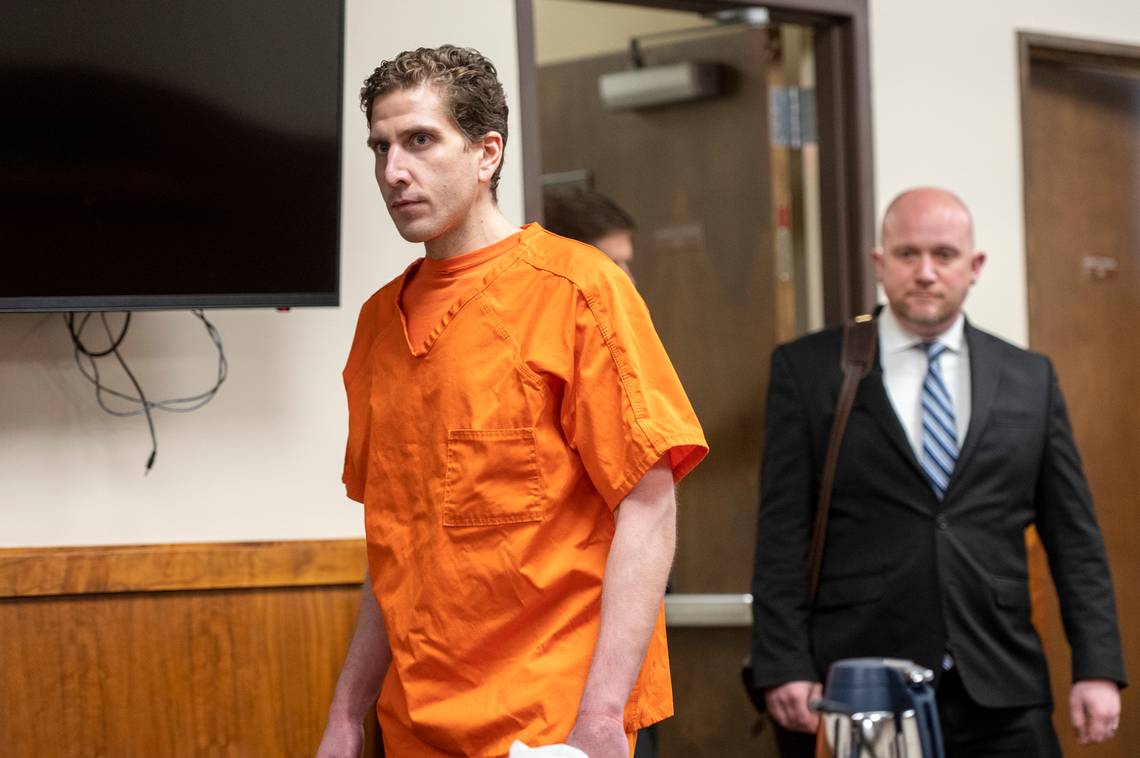Prosecutors are urging the judge in the Moscow college student murder case to reject defendant Bryan Kohberger’s alibi submitted earlier this month and limit how his defense can present the evidence at trial.
Latah County Prosecutor Bill Thompson argued in a written response that the defense has failed to meet the state’s legal threshold to argue that Kohberger was elsewhere than the crime scene at the time of the November 2022 quadruple homicide. The document was filed Friday, but not posted to an Idaho courts website until late Monday.
“The defendant’s supplemental alibi response continues to lack the specificity required by Idaho code,” Thompson wrote. “The defendant is offering nothing new to his initial ‘alibi’ that he was simply driving around during the morning hours of Nov. 13, 2022.”
Kohberger, 29, is charged with four counts of first-degree murder in the stabbing deaths of the four University of Idaho students and faces the death penalty if convicted. The victims were seniors Madison Mogen and Kaylee Goncalves, both 21, junior Xana Kernodle and freshman Ethan Chapin, both 20.
Kohberger’s attorneys have said their client, who was a graduate student at nearby Washington State University in Pullman at the time, was out driving his car alone when the crime took place. Police estimate the U of I undergrads were killed between 4 and 4:25 a.m. at an off-campus home on King Road in Moscow, which is located about 9 miles east of Pullman.
In response to prosecutors’ demands, Kohberger’s public defenders last summer filed an alibi that he was out for an overnight drive by himself, as had long been his habit, near the Idaho-Washington state line.
“We knew that already, and if that’s his alibi, so be it,” Thompson countered at a pretrial hearing in August.
At that time, Latah County Judge John Judge of Idaho’s 2nd Judicial District, who is overseeing the case, also referred to Kohberger’s claimed whereabouts as a “so-called alibi, not really an alibi.” He later granted the defense more time to bolster their alibi defense claim, which Idaho requires be filed ahead of trial so prosecutors have adequate time to prepare to disprove it.
Kohberger was an avid runner, hiker and moon- and stargazer, his attorneys added in the most recent filing, including around southeastern Washington’s Wawawai County Park the morning of the homicides. Kohberger’s cellphone data, including late night photographs from that month of the homicides, prove the claim, and a cell tower data expert would lend “partial corroboration” of their client’s alibi through testimony at trial, they wrote.
Since Kohberger’s arrest about seven weeks after the homicides, police and prosecutors have alleged that the defendant’s cellphone stopped reporting to the area’s cell tower network at the time of the homicides, and was possibly intentionally turned off. Prosecutors asked Judge to deny the defense’s plan to use the cell tower data expert at trial, and only allow Kohberger to testify to his whereabouts, if he chooses.
“The location of (the) defendant’s cellphone at times other than the time of the homicides is not proof of or relevant to the defendant’s specific location at the time of the homicides,” Thompson wrote.
Arguments set over closed hearing next month
In other legal filings Friday, Kohberger’s attorneys asked Judge to allow investigators for the defense to review the FBI’s forensic genetic genealogy records. The advanced police investigative technique involves using DNA from a crime scene to build a family tree through public genealogy websites to narrow the list of possible suspects.
The use of investigative genetic genealogy, or IGG, in the case was not identified in the probable cause affidavit for Kohberger’s arrest. Thompson acknowledged six months later that the FBI employed the technique to initially arrive at Kohberger as the homicide suspect, and Judge eventually awarded the sealed records to the defense, but with some limits on who could review them.

On Friday, the defense also requested most of the IGG records be unsealed.
“There is simply no legitimate reason that the way the IGG procedures in the case took place should be shielded from the public,” wrote Jay Logsdon, one of Kohberger’s public defenders. “Most materials have been sealed in this case to protect the right to a fair trial. There is simply nothing unfairly prejudicial about the way in which IGG was carried about (by) the state and its associates in this case.”
Judge also scheduled a hearing for Thursday morning to help decide whether another pretrial hearing set for May 14 should be closed to the public. Prosecutors last week asked that the hearing be closed for arguments over the defense’s demand for state evidence through the legal process known as discovery, and Anne Taylor, Kohberger’s lead public defender, objected that it should be held in an open setting.
“The process of sealing is being abused by the state and its law enforcement agents; including the FBI to hide how discovery is being withheld in this case,” Taylor wrote. “Not only is there no authority to protect the FBI, other law enforcement agents, and the state in this matter, this request to deny Mr. Kohberger an open hearing is a clear violation of his right to a public trial.”
Judge has not set a date for Kohberger’s anticipated trial. A June 27 hearing is scheduled for arguments over a possible venue change outside of Latah County.
